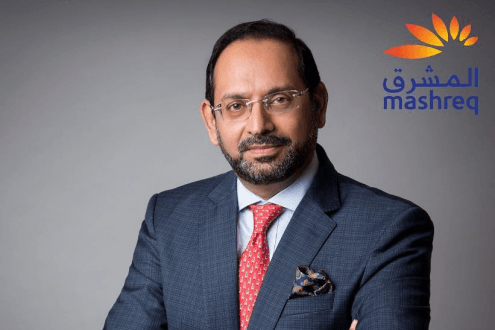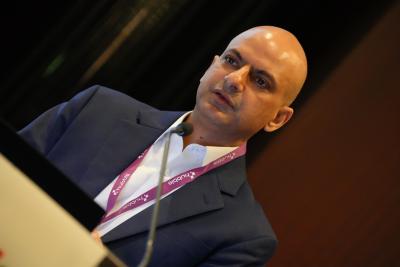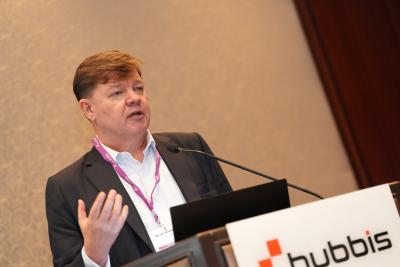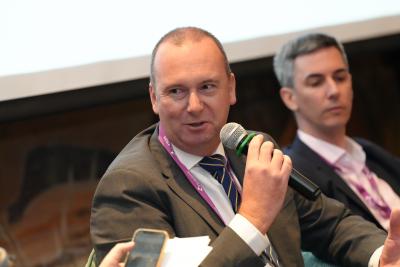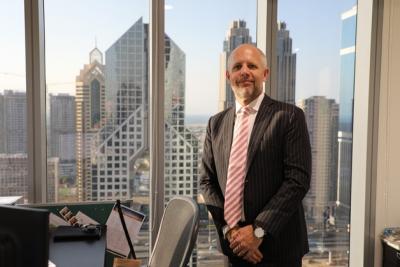Mashreq Bank’s Vipul Kapur on Scaling up the Middle East Private Banking Offering
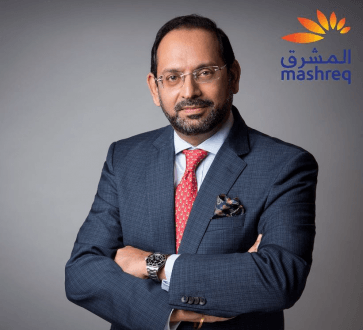
Sep 20, 2021
Vipul Kapur is now in his fifth year as head of private banking at Mashreq Bank in Dubai and has been overseeing a dramatic escalation of the wealth management operation and penetration of the bank, as well as scaling it up to cater to as broad a market as possible, in other word also to the mass affluent, many of whom might be tomorrows HNWIs. And Mashreq Bank’s wealth management proposition appears to be in good hands, as Vipul has been leveraging 25 years of experience in banking with Citibank, where he worked in India, Bahrain, Dubai, Singapore and London. He sat as one of our expert panellists at the Hubbis Digital Dialogue event of August 31, dedicated to tracking the impressive evolution of the Middle East wealth management market. Such was the value of his perceptions that we have distilled them into this summary, which offers a fascinating insight and guide to the current state of the market, and anticipates the next phases of development, as well as highlighting some of the key challenges the industry and the regulators must together work to overcome.
Vipul reported that the bank had seen what he termed “a massive inflow” of new clients coming into the region in the past year. “We have tripled in terms of new client acquisitions, and much of this is because people are starting to see UAE as a second home or a third home and a lot of these UHNWI clients are starting to move their wealth along with them into the region. The regulators have done a fabulous job in the country; people have found new confidence in the region.”
An increasingly sophisticated clientele
He explained that there is a more sophisticated approach to wealth management amongst clients, who are becoming less product-focused, who are diversifying their assets, taking more defensive strategies, ring-fencing their assets against market weakness and wipe-outs, and looking at the widest possible spread across asset allocation.
He also told delegates how there are more wealthy families and family offices coming into the UAE, which is now increasingly being looked at as a safe haven for the Middle East and the wider GCC, rather like Singapore to Asia.
Safe haven jurisdictions
“These family offices are now starting to look at diversifying part of their assets from other geographies and into UAE, so, both on the high-net-worth space and the family office side, I think the region is starting to pick up a lot more momentum,” he reported. “And I think this trend will continue. Indeed, we started to see a lot of that flowing into the real estate side, but more importantly, when people move into geography, money follows them. And I think that's where most banks, asset management companies, EAMs will start to see the benefits flow through.”
Mashreq is the only Bank in MENA having a dedicated Family Office team in the Trillion-dollar segment. The service, which is available in some of the world's most dynamic markets, serves Family Institutions that have wealth in excess of USD 50 million, reports Kapur.
Evolving wealth demographics
He expanded on this, remarking that there are several associated trends. One is the growing flow of money to the nextgens from the older generation, resulting in many new clients asking for wealth management support. “We must therefore recognise that statistics show that relationships with providers change some 70% of the time, and as a growing private bank, to be able to capture that flow of money that will come into the new generation is a great opportunity.”
Along with this, he noted that the new generation expects different products, services and delivery, with elevated digital offerings expected.
A discerning audience
“It is not just the simple processes and connectivity that are needed,” he said, “but we need to adapt to the knowledge economy; these clients want information quicker, and that is more pertinent to their requirements and specifically tailored and targeted to what their needs and expectations,” he said.
“So, our relationship managers are in need of many more digital tools today.”
Secondly, the market historically was a very fixed-income focused market. “That is still the case today,” he reported. “However, we have started to see significantly higher diversification, especially where the markets have done very well. So, whether it is on the fund side, whether it's on the private equity side, or whether it is specific tailored products, or the discretionary portfolios that we may be able to offer, clients are looking for a lot more of that diversification.”
Competition aplenty
Vipul also explained that despite the growing market size and potential, differentiation is vital. “There is a lot of competition, right from the well-known private banks through to the new FinTech entrants. It keeps us all on our toes. As an established bank, considered more traditional, we have to adapt very quickly.”
Fortunately, he reports that Mashreq Bank is a lot more agile as an organisation, a lot nimbler today. “We are now definitely positioned and able to face some of these challenges and evolve much faster,” he reported. “There's not necessarily one or only a few winners, because the pie is growing in fact, the UAE is growing at roughly double-digit growth rates year on year at to AUM – but for sure, we as an organisation need to continue to be at the cutting edge of both technology and the knowledge economy and also be able to fend off some of the big tech that are going to be coming into this marketplace.”
Elevating the proposition
As to exactly how the bank will adapt, Vipul explained that the bank must elevate its capabilities to offer the best possible advisory services and to be able to deliver them consistently and to be able to work with the regulators to make it a lot easier to provide services to customers not just in the Middle East, but also overseas.
“Actually,” he commented, “some 30% to 40% of our client base lives outside of UAE but has some connection with the UAE. So, we need to be able to provide them with seamless engagement in terms of providing them with access to knowledge to make decisions fast on their portfolios. And we are already well up there, and we see the next three to five years are going to be really quite interesting as we continue to build on this.”
Digital transformation – core to the journey
As to the bank’s digital journey, he reported that they are undergoing a “massive transformation” on the technology side, working with several FinTech partners, both from Europe and from Asia, from Singapore in particular, in order to be able to revamp the bank’s entire system.
“We adapted to remote access and working within days,” he reported. “We can talk to a client sitting anywhere in the world and engage with them as if we are in the same room, and that gives us not just the ability to talk but also to open accounts. We are working with regulators to see how we can eliminate wet signatures, for example, in order to open accounts, we are talking to them to see how we can directly access databases that the government has today in order to do verifications of customers. There are dramatic changes in the UAE particularly because the government is extremely keen to make these processes digitised.”
Data-driven relevance
He also offered more insights into the evolution of the knowledge economy. “We have built systems where customers via digital as well as through their relationship managers, can have access to information 24/7, pertinent to their needs. By the end of 2021 we'll be rolling out a brand-new system to deliver all this information on economies, markets, funds, companies, all sorts of investments, and with a global perspective. And we are particularly strong on the local side; whether it is local mortgages, whether it is local fund management, local investment opportunities through our corporate and investment bank, we have the ability to provide that to our family offices and HNIs. So, we bring the entire suite to them. I think that should keep us ahead in the game.”
Upskilling and building talent
Talent, of course, is essential to the continuing growth of the Middle East market. “Having worked in both Singapore and London for many years, and then in the Middle East, for the last 15 plus years, I've seen the way these countries have evolved and have generated the kind of talent that they have in the wealth management space,” he commented.
“In our private banking world, and in the world of high net worth family office management, the RM is going to continue to play a central role along with his team-based approach that we've put in place, the advisors, the FX specialists, the trade specialists, and so on,” he commented.
Government support
He reported that the government of the UAE is very cognisant of the fact that talent development needs to increase and improve and therefore the UAE needs to be a recognised place for attracting the best talent in the wealth management industry. There are some streams in progress as we speak to help bring that vision to life,” he reported.
“There are two parts to it,” he elucidated. “One is what the government can do, not just the central bank but the entire ecosystem, and secondly, what the individual partner banks can do towards this goal. The government is really giving us a free rein as banks and professionals to be able to build that talent.”
He explained that Mashreq Bank has a stated mission to attract and retain the best wealth management talent in the region. “That's an easy thing to say, but it's a very difficult thing to execute, and we've developed a bunch of internal training programmes, we have tied up with certain international organisations and universities to be able to provide our best RMs the kind of growth that they expect in our organisation,” he said.
Empowering women in wealth management
“And at the same time,” he added, “the government is very emphatically helping with the opportunity to develop women’s talent. “That is going to be critical as this region grows. And what has taken decades in other more mature markets in Europe, or Singapore, is being achieved much faster here. Already we have RMs with an average working span of approaching eight years with us, so talent retention is also potentially very good if the right approaches are maintained.”
“At Mashreq, we understand the unique imperatives of wealthy women investors. We have a team of certified women wealth relationship managers especially catering to our wealthy women clients, who meet, understand and evaluate their wealth and investment aspirations,” Kapur continued.
The Middle East as magnet
He concluded his observations by remarking that in the 25 years he has lived and worked in the UAE, the development has been both extremely rapid and incredibly impressive.
“We are even seeing some key talent shifting from Singapore and even Europe to here for a variety of reasons. This is a massive region between Singapore and London, we are beautifully placed between those two massive markets. And growth abounds all over, whether directly here, or Egypt, or Oman, Saudi Arabia and so on. So, we are seeing a lot of that activity flow coming in into Dubai. You will see a lot of excitement in this region, a lot of new talent coming in into this market from other regions, and a lot of growth ahead.”

Head of Private Banking at Mashreq

More from Vipul Kapur, Mashreq
Latest Articles


